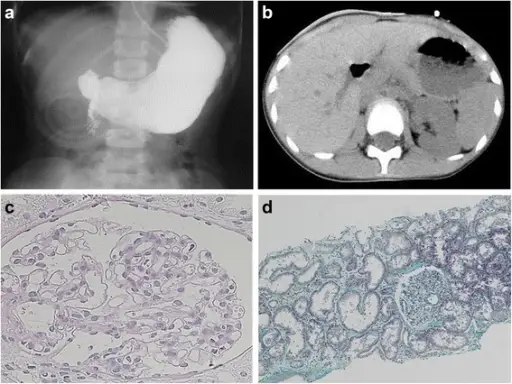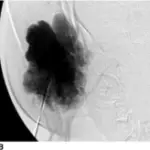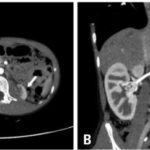Agenesis of the kidney is a congenital anomaly in which the individual lacks one kidney unilateral agenesis or lacks both kidneys total bilateral agenesis.
What is the Pathology of Agenesis of the Kidney?
The pathology of agenesis of the kidney is:
-Etiology: The cause of agenesis of the kidney is idiopathic, genetic, other congenital anomalies,
-Genes involved: None.
-Pathogenesis: The sequence of events that lead to agenesis of the kidney is unknown.
-Morphology: The morphology associated with agenesis of the kidney shows the absence of one or both kidneys, hypertrophy of the remaining kidney.
How does Agenesis of the Kidney Present?
Patients with agenesis of the kidney are typically more frequent in male infants present at the age range of infancy period. The symptoms, features, and clinical findings associated with agenesis of the kidney include absence of one or both kidneys on imaging, absence of urine, wide-set eyes, receding chin, ears with reduced cartilage, dehydrated skin, hands, and feet deformities.
How is Agenesis of the Kidney Diagnosed?
Agenesis of the kidney is diagnosed through sonographic investigations, prenatal ultrasound
How is Agenesis of the Kidney Treated?
Agenesis of the kidney is treated through symptomatic and supportive care, dialysis. Surgical intervention kidney transplant.
What is the Prognosis of Agenesis of the Kidney?
The prognosis of agenesis of the kidney is poor in case of bilateral agenesis, it is incompatible with life.



